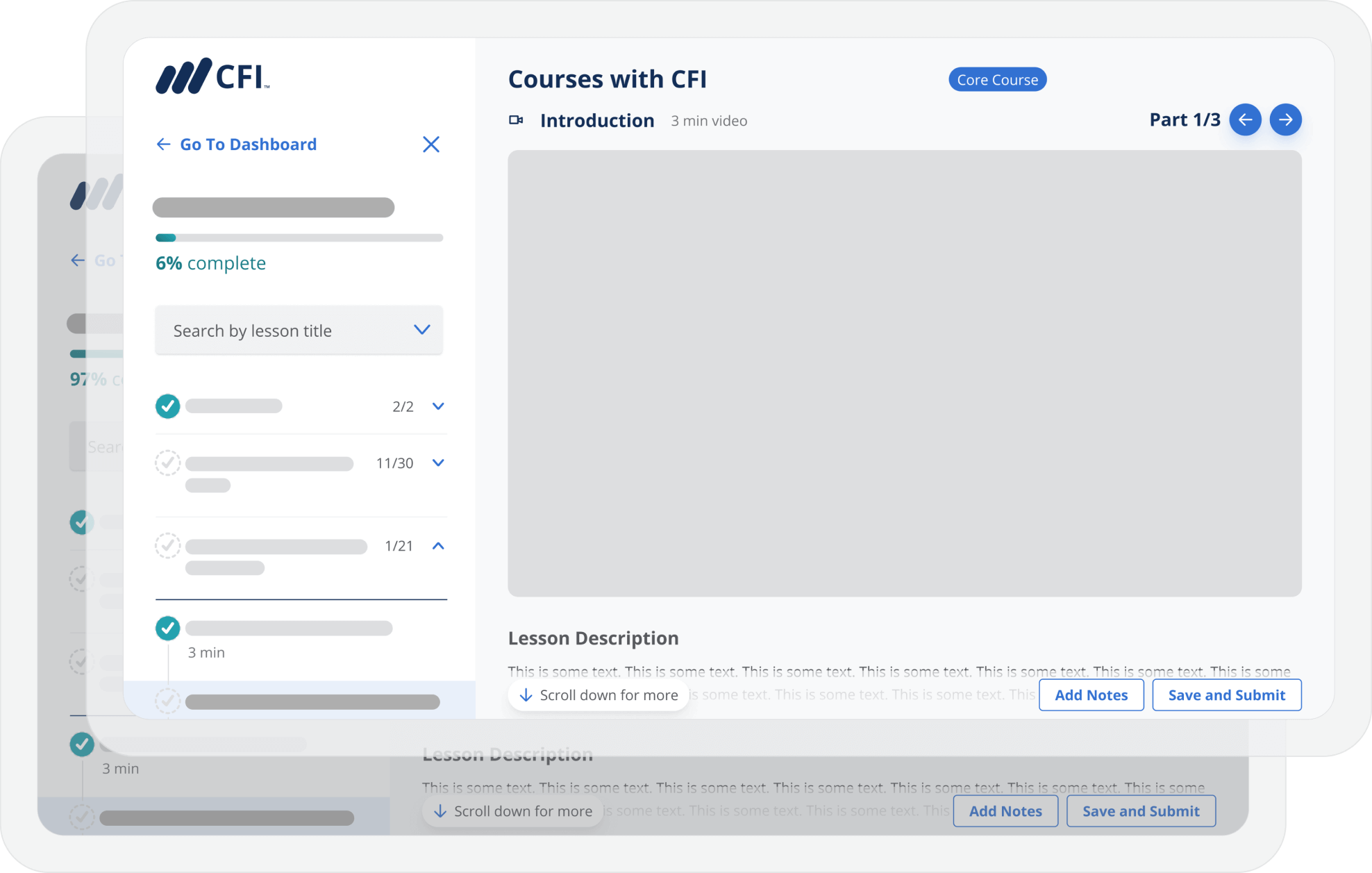Learn Derivatives with CFI
What's Available
World-class courses
Consisting of over 700 lessons
Interactive exercises
Learn by doing with guided simulations
Expert instructors
Learn from the very best
New courses monthly
On need-to-know subject matter
Blockchain certificate
To verify your skills
500,000+ 5-star ratings
Best-in-class training, as rated by you
Start Your Derivatives Learning Path
Top Derivatives Courses
Browse all coursesWhy Learn Derivatives with CFI?
Created with the guidance of professional Wall Street trainers with over 20 years of experience training new hires at investment firms, CFI’s courses are designed for success in finance careers. Courses blend theory with real-world application to build valuable skill sets for finance professionals.
Using innovative design and a fully online format, the courses at CFI give learners the flexibility to build their skill sets anywhere, at any time, and prepare for a career on their own schedule and pace.
Over 75% of CFI learners report improved productivity or competency within weeks.
With our derivatives courses, you will learn:
Who is professional derivatives training for?
Investment professionals
Management consultants
Financial analysts
Registered provider: National Association of State Boards of Accountancy
All courses are accredited by the Better Business Bureau (BBB), CPA Institutions in Canada, and the National Association of State Boards of Accountancy (NASBA) in the US. Most courses qualify for verified CPE credits for CPA charter holders.
Courses include video lessons, quizzes, and final assessments.









